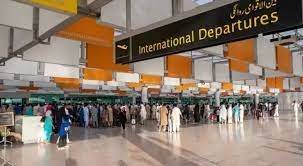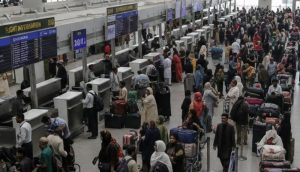SARAJEVO – Bosnia and Herzegovina (BiH) has revoked the work visas of 39 Pakistani nationals as the authorities launch a crackdown against those misusing the visas.
As part of the operation, the cases of 14 Bangladeshi citizens are still under review as confirmed by the Service for Foreigners’ Affairs (SFA) of BiH.
The SFA announced that the Pakistanis had used their work permits, granted upon their arrival in the country, to travel to Croatia and subsequently enter other EU states, including those within the Schengen Area.
BiH authorities have issued a warning that work permits will be cancelled for migrants who misuse them to move irregularly from Bosnia and Herzegovina to other countries.
The crackdown comes amid Bosnia and Herzegovina’s efforts to open its doors to migrants to address labour shortages, particularly from countries such as Bangladesh, Pakistan, and Nepal, Schengennews reported.
Despite many migrants securing employment in BiH, some have been found to leave the country for Croatia and continue their journey into other EU member states. Police reports indicate that irregular migrants often pay substantial sums to intermediaries or employers to secure work permits and visas for entry into BiH.
The SFA is urging employers to ensure that foreign workers enter the country through authorised channels and failure to do so could result in employers bearing the costs for accommodation in immigration centres and deportation expenses.
As far as the rules are concerned, foreigners seeking employment in BiH must obtain a work permit through the Employment Service offices after entering the country on valid visas. Employers are responsible for applying for these permits on behalf of their international staff and once issued, work permits are valid for one year and can be extended.
In the first half of this year alone, reports suggest that Bosnia and Herzegovina issued 3,230 work permits, continuing a trend of increasing annual figures. The UNIDAD Employment Agency reported that approximately 3,500 work permits were granted in the first 11 months of 2023, not including those who remain in BiH without permits under certain conditions.
The country has been welcoming a large number of foreigners in recent years as their number has doubled since 2020, though it remains small compared to neighbouring Croatia, which hosts over 140,000 foreign workers.
The most pressing labour shortages are observed in the manufacturing, catering, and construction sectors, with a considerable number of workers from Serbia, Bangladesh, Nepal, and Kuwait filling these roles.














